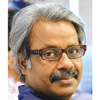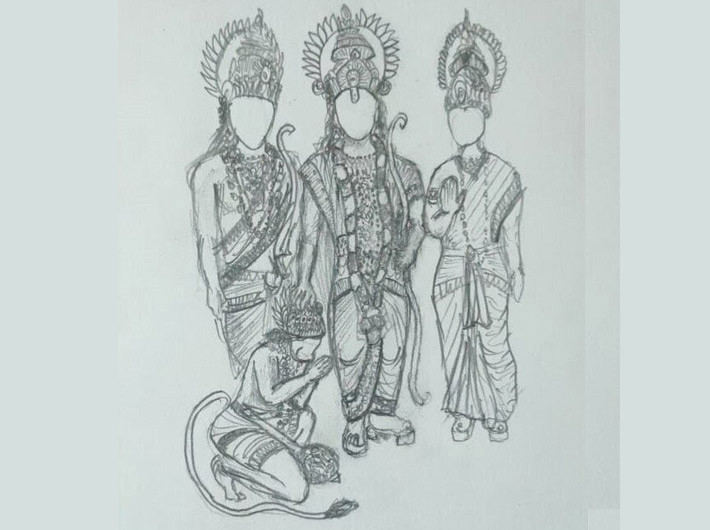Establishing Ram Rajya in a modern world is difficult, but it’s undoubtedly desired
India is celebrating the reinstating of Lord Ram in Ayodhya, his birthplace, after almost 500 years of politico-legal struggle. At the same time, politics is inevitable in a modern democracy; ironically, the matter of religion in public life for the majority population threads between the expression of faith and the exploitation of belief.
The act remains the same; it changes the worldview of people who gain or give away benefits from the construction of socio-political capital with the consecration of the Ram temple on January 22. History is more than evident that politics and power have often used religious sentiments, either through the State's aggression or alignment with the feelings of society, to perpetuate a particular religion. India, before independence, had witnessed several establishments aligned to a region that practised a specific religion other than the dominant religion of the country. Due to paternalistic rule, often, these States established through aggression may be against the popular sentiments of people. In every such establishment, erosion of historical evidence with the infusion of contemporary material may not testify to proof of the past in purity.
Many such material or physical structures are culturally neutral and continue to function for years without contestation in society and the state. Some examples are Lal Qila, Qutub Minar, Old Parliament and the Taj Mahal. Contestation arises with culture-sensitive imposition over historical structures or monuments that reflect subordination of power expressed in religious sentiments. Mainly because, unlike material culture, non-material culture, such as beliefs, values, and feelings, permeates beyond physical structures.
The Place of Worship (Special Provision) Act, 1991 does prohibit conversion of any religious place of worship. However, the Act did not apply (it was exempted as per Act) to ‘Ramjanma Bhumi Babri Masjid’. However, despite the gravity of conflicting sentiments, the Ramjanma Bhumi Barbri Masjid debate was settled in court to testify about how the modern contested worldview in democracy should be resolved. In contemporary democracy, conflicts between material and non-material cultures with high sentiments are bound to rise. Thus, in the 21st century, conflicting material and non-material cultures that pronounce popular religious beliefs are expected to grow, and this undoubtedly require jurisprudence to conduct a scientific inquiry by encapsulating history, anthropology, and archaeology apart from the law.
Politics is bound to rise; what is essential to install is peace and prosperity. In the last two decades, the rise of the BJP in states such as West Bengal, Jammu & Kashmir, Uttar Pradesh and Bihar has brought the regional political partiesto reposition. The BJP has maintained the construction of the Ram Mandir in its political agenda in last two-three decades. While the agenda for Mandir remains within BJP, many regional political parties have shifted their alliance from NDA to ‘INDIA’. This may not be due to the Ram Mandir's agenda. Rather, it is in line with the Darwinian theory of survival of the fittest in the political arena. With the shifting paradigm and priorities of the alliance, parties have best adapted to the environment that is more likely to survive and reproduce political dividends.
The Ram Temple project is filled with sentiments, and political gain is evident. Therefore, the BJP is entitled to seek advantage from its construction. While sentiments in politics pay dividends, ample evidence suggests that emotion without economic gain does not last. No government in modern democracy survives and sustains merely on religious emotions in a democratic setup; these emotions are required to create public value. Thus, emotions are necessary to improve the lives and livelihoods of the citizens.
Establishing the birthplace of Ram in Ayodhya will redraw a global spiritual roadmap. Regardless of religious belief, the Ram Temple will undoubtedly attract tourists and is expected to provide equitable livelihoods to millions. The government recently announced eight concepts behind the ongoing revamp of Ayodaya: saksham, adhunik, sugamya, suramya, bhavnatmak, swacch, and ayushman Ayodhaya. This is very much in line with BJP phase one, making it a pitch for Sabka Saath and Saabka Vikas; the second phase added another two: Sabka Prayas and Sabka Vishwas. These have certainly classified the BJP government vision as four vows. The third phase will likely necessitate the BJP government to convert vision (four vows) into realisation by pushing for another critical vow – Sabka Ehsaas!
Apart from a political and economic perspective, in the 21st century, the establishment of Ayodhya as the birthplace of Ram is likely to reproduce a lineage of values, ethos, and integrity critical desirability of governance in modern society. In Ram Rajya, Ram as ‘Maryada Purosottam’ – the dignity of one among the million bestows - the role of power constraining personal benefits over and above family that cements values and ideology within society and with the State. As an ideal ruler, the sacrifice and the stake of brotherhood that symbolises the desirability to prove integrity over personal interest is another crucial ingredient for modern governance. Devoid of moral accountability, modern society is in a blind run from conventional values to emulate the transactional marketable valour of modernisation. This modernisation chase has eroded the social capital, values, and mutual respect of relationships. In early 1893, Emile Durkheim stated that this evolution forced the division of labour into periods of confusion, disenchantment, and delusion due to rootlessness. Therefore, the government establishing Ram Rajya in a modern world is difficult, but it’s undoubtedly desired.
Today, apart from governance, Ram Rajya leads to another pertinent question of ethos in society. In 1925, H. C. Dowdall wrote an article titled ‘What is Society’?, stating that this question, though unfashionable, is piously reminiscent of Aristotle. For Aristotle, society binds people and environments into settlements and sentiments into civilisation. While the government may desire Sabka Saath, Sabka Vikas, Sabka Prayas, and Sabka Vishwas, the society-state partnership can propagate a progressing society.
Thus, why Ram in the 21st century? The question is more profound than mere articulation of political and social facts. Modern society often remains under the wrath of the ‘Tragedy of the Commons’ – individuals today remain ignorant of long-term consequences on public resources in the race of exploitation for personal interest. In the construction of society, the ‘values’ practised by powerful elites cement trust between the State and society. It’s to abstain from abuse of public power and public office for private gain. Ram became ‘Purushottam’ because of ‘Maryada’ – an inherent urge to restore dignity and respect in society and the State. In modern society, the judiciary can restore ‘Maryada’; it’s the society that reproduces the culture of ‘Maryada’.
Apart from filling the social and political void in modern society, the philosophy of ‘Maryada’ in the Ramayana does enroot prosperity with the belief among diaspora beyond India. It is celebrated in several countries. Ramakein is one of the epics of Thailand; Hobutsushu and Sambo-Ekotoba of Japan; Yama Zatdaw or Yamayana in Myanmar; Reamker in Cambodia; Kalawin in Indonesia; Hikayat Seri Rama in Malaysia; Phra Lak Phra Ram in Laos; Nepal, Sri Lanka and many more countries including in Europe have traces of the Ramayana.
Therefore, in 21st century, Ram Temple, Ram, and Ram Rajya together hold the blueprint to build a road that can restore morality within economic and political transactions by sustaining values of tradition that place and principles are over and above the pedestal of power.
Prof. Avanish Kumar is Dean, School of Public Policy and Governance & Center of Excellence and Faculty In-charge PGDM-PPM, Management Development Institute, Gurugram.

